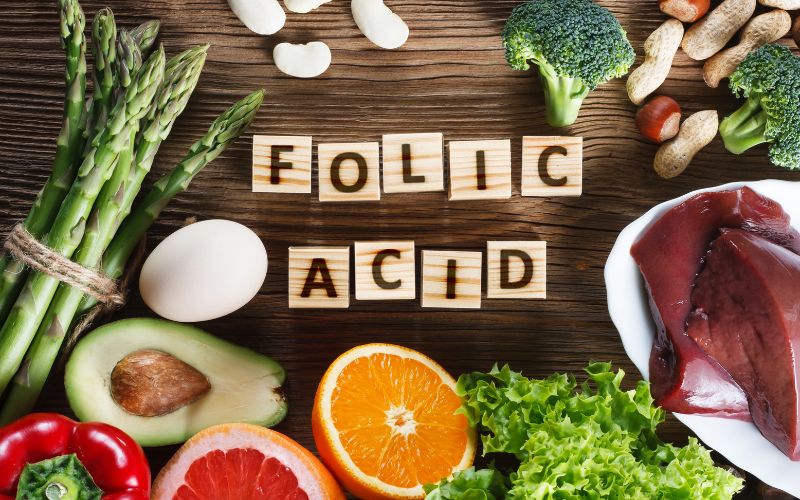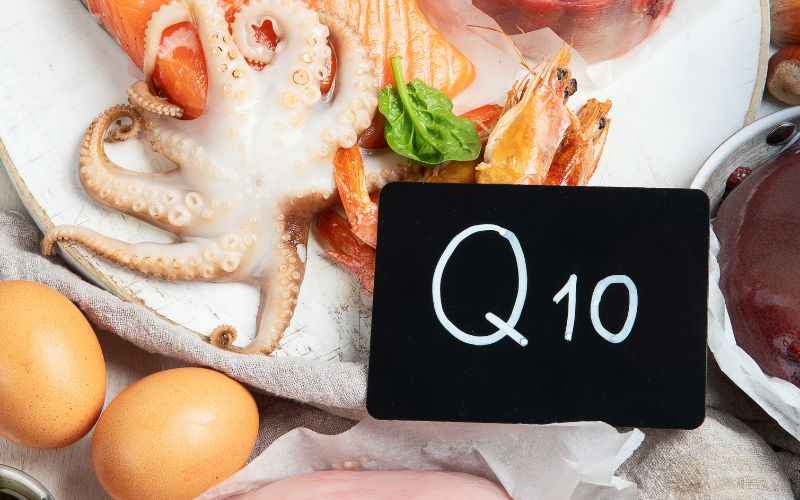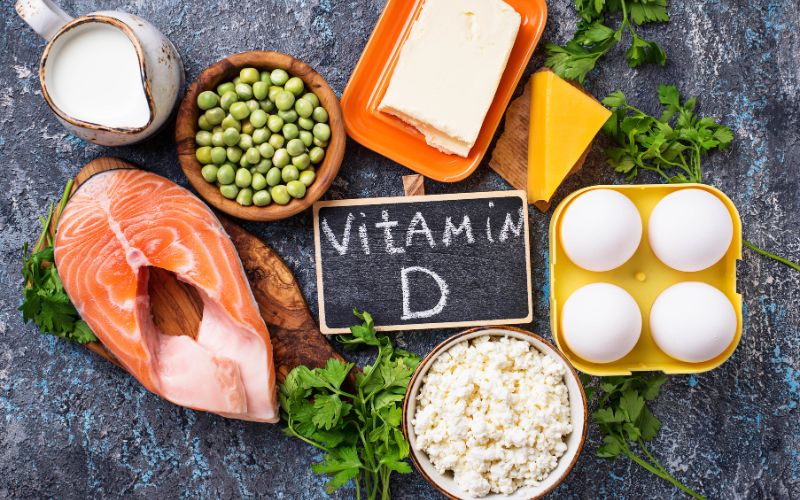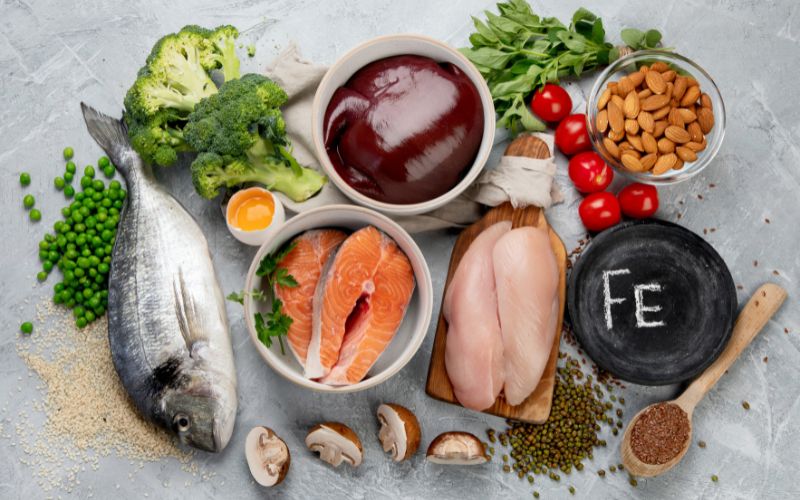Protecting and improving ovarian health is crucial for women trying to conceive, especially with the rising number of women facing difficulties with fertility and infertility. In this article, we’ve compiled a list of five food groups believed to enhance fertility in women. Let’s explore them together!
1 Foods Rich in DHEA
DHEA, short for dehydroepiandrosterone, is a hormone produced by the adrenal glands. Low levels of DHEA can impact egg development and even lead to ovarian atrophy.
Therefore, moderate consumption of DHEA-rich foods can support the healthy development of ovarian follicles. Some examples of these foods include yams, soy products, eggs, and salmon.
 DHEA-Rich Foods
DHEA-Rich Foods
2 Folic Acid-Rich Foods
Folic acid is crucial not only for pregnant women but also for those trying to conceive. It is believed to improve irregular ovulation, support embryo development, and reduce the risk of birth defects.
You can find folic acid in foods such as avocados, asparagus, broccoli, leafy greens, wheat germ, and beans.
 Folic Acid-Rich Foods
Folic Acid-Rich Foods
3 Foods Containing Coenzyme Q10
Coenzyme Q10 is beneficial for nourishing eggs, increasing fertility, and is especially important for older women, those with a history of miscarriage, or those facing fertility challenges.
Coenzyme Q10 levels can decrease due to various factors and may decline with age. Therefore, it’s essential to boost your intake of Coenzyme Q10-rich foods.
Natural sources of this coenzyme include organ meats, soy, walnuts, tuna, broccoli, and spinach.
 Foods Containing Coenzyme Q10
Foods Containing Coenzyme Q10
4 Vitamin D
Vitamin D is a familiar entity, a fat-soluble vitamin that influences the production of hormones, helps thicken the uterine lining, and creates an optimal environment for a baby’s development in the womb.
Vitamin D-rich foods include salmon, herring, sardines, egg yolks, and mushrooms. Additionally, sun exposure can also boost your body’s vitamin D absorption.
 Vitamin D Sources
Vitamin D Sources
5 Iron-Rich Foods
Iron is essential for human health, especially as a vital nutrient for nourishing the ovaries. Moreover, since women lose blood during menstruation, it’s crucial to replenish iron levels if trying to conceive.
Adequate iron intake reduces the risk of infertility, stimulates follicle development, and supports embryo formation. Iron-rich foods include red meat, egg yolks, spinach, and lentils.
 Iron-Rich Foods
Iron-Rich Foods
This article has provided an overview of five food groups that can potentially enhance fertility in women. We hope this information proves valuable in your journey towards better health and starting a family!
Source: Vietnamese Women’s Newspaper
































